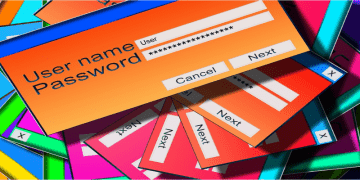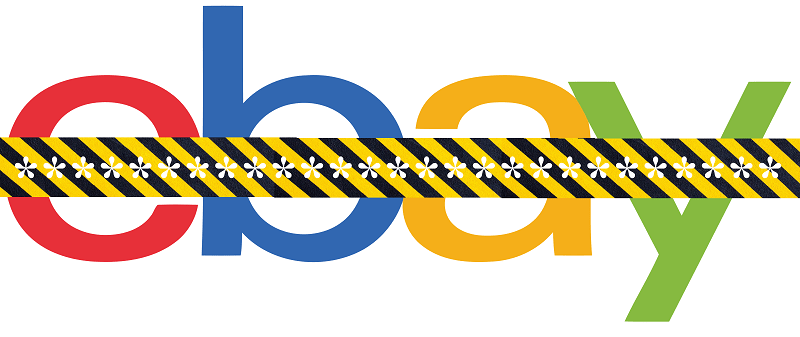How to Browse the Web Without Compromising Password Security: 8 Security Tips

What do we want from the internet? We want a fast, reliable source of useful information and entertainment and a convenient way of communicating with people all around the world. What do we NOT want from the internet? We don't want to be harassed, we don't want malware, and we don't want to fall victim to online scams. Unfortunately, far too often, while we're searching for the things we want, we end up with the things we don't want.
Threats are lurking behind every corner of the internet, but instinctively, we rarely think about them when we connect to the nearest network and open a browser window. That's why so many users fall victim to a wide array of cyberattacks every day. Of course, we can't devote all our attention to the bad guys, but if we keep them in the back of our minds, we stand a better chance of avoiding the traps the cybercriminals set. We also stand a better chance of following the tips you're about to see below.
Table of Contents
Keep your software up-to-date
Security specialists have talked time and again about the importance of regularly updating the software you're using. Attackers find vulnerabilities in browsers, operating systems, and other products every day, and they're using them in their malicious campaigns. Software vendors react quickly and release patches that fix the bugs, but users are usually in no hurry to apply them, and the results are often pretty horrific.
In May 2017, for example, the WannaCry ransomware locked the data of hundreds of thousands of computers worldwide and ruined the day of millions of people. The attack was completely unheard of, but the vector WannaCry used to infiltrate so many Windows computers was well-known. It was a security vulnerability, and Microsoft had addressed it with a patch several months before the outbreak. Because so many people and organizations failed to apply the said patch, however, we witnessed one of history's biggest cyberattacks.
Don’t forget to check the address bar every now and again
Browsing can be addictive. We spend hours surfing through web pages, and we're so focused on finding the bit of information we're looking for, that we often don't know where all the time has gone. Our attention is completely absorbed by the browser window, but we rarely keep an eye on one of its most crucial areas – the address bar.
It can tell us more than a few things. The address bar in modern browsers, for example, says whether the connection between your computer and the website you're viewing is secure. It can also tell you if you're entering your password on the right website. We shouldn't forget that phishing scams rely on us being too distracted and absent-minded to notice that we're sharing information with a malicious page. Therefore, defeating them is as easy as paying a bit more attention.
Connect only to networks you trust
Laptops and mobile phones have completely transformed the internet. Thanks to them, connecting to it doesn't require lugging around a clunky desktop computer, a monitor, and a bag full of peripheral devices. This, in turn, means that we can get online at airports, cafes, and hotels. Unfortunately, doing it is often very risky.
If you connect to the unsecured Wi-Fi networks you find at such places, the information that exits your device will not be encrypted, and a third-party could be able to read through it. The said third party can also modify the traffic that's coming to you and can present you with a fake login form that can steal your username and password. A VPN can ensure that the connection between you and the internet is encrypted, but if you don't have one, you're better off staying away from free, unsecured Wi-Fi networks.
Use an ad-blocker
The internet and the advertising industry live in what looks like the perfect symbiosis. Many of the online services we use every day are free because their creators can make money from ads. At the same time, by using the internet, advertisers can reach a much larger number of people compared to more traditional channels, often, at a fraction of the cost.
Unfortunately, honest companies who use the internet to sell legitimate products aren't the only ones who use ads. The cybercriminals employ them to cast the net wide and reach a vast number of potential victims for their scams and malware campaigns. This has been such a big trend that developers have launched ad-blockers – browser extensions that prevent advertisements from appearing and luring you into various traps. Indeed, these extensions also block legitimate ads, which is not good news for many service providers, but despite this, security specialists reckon that you're better off with rather than without an ad-blocker.
Don’t install too many browser extensions
While you're looking for a suitable ad-blocker, you're likely to come across a wide variety of different browser extensions that can add features to your browser and make it prettier. Indeed, browser extensions are an inseparable part of the modern browsing experience, but you must remember not to get carried away.
Browser vendors don't impose strict rules on what should and what shouldn't appear on their extension stores, and often, cybercriminals take advantage of this. Some extensions don't work, some flood the screen with annoying ads, and some act as browser hijackers and can even drop malware on your system. Before you install an extension, be sure to go through the reviews and ratings, and you could do worse than give it a quick Google search to see what other people think of it. Even then, you need to think carefully about whether you need it before you click the "Install" button.
Be careful with the links you click
You also need to be a bit more careful with the links you follow. As we mentioned already, we don't have the habit of checking out the address bar every now and again to make sure that we're in the right place, and in much the same way, we often fail to notice where the link we're about to click will take us.
Needless to say, the hackers know this, and they not only send malicious links through spam emails, but they also plant them on compromised legitimate websites sometimes. Thankfully, modern browsers let us see the destination URL before we actually click the link. Hovering the mouse cursor on desktop computers will display it in a small box at the bottom of the window, and on mobile devices, tapping and holding will usually bring it up. It's no guarantee to keep you safe, but it certainly improves the odds.
Don’t overshare information
At some point, you'll end up on a website you've never heard of before, and you'll be asked to create an account. Many people instinctively fill up all the fields they're presented with and share some pretty personal and sensitive information with service providers that may or may not have ulterior motives. Data is a very valuable commodity in this day and age, and countless incidents have proven that we can't really be sure where our personal details end up after we enter them into a registration form.
Even if your data isn't passed on by a service provider, it can always be stolen by hackers. Some of you might say that there's nothing you can do about that, but if you think about it, you'll realize that the less information about you is stored on the internet, the less information can end up in the wrong hands.
Use unique passwords
Last but by no means least, we have arguably the most common mistake internet users make these days – reusing the same passwords. The trend started years ago, and there's no sign of it going away any time soon. Far too many people still seem convinced that assigning unique passwords to all their accounts and remembering them is not possible. They reuse the same passwords across multiple providers, and there have already been many attacks that serve as stark reminders of how dangerous this can be.
The thing is, people are right about the fact that remembering so many strong and unique passwords is not possible. Thankfully, however, there are tools like Cyclonis Password Manager that can help them do it. A password manager is considered the best way to store your login data, and if you really want to stay safe on the internet, you need to consider using one.
Conclusion
Some cyberattacks and online scams are rather simple and obvious, while others are extremely well-thought-through. More often than not, however, protecting yourself even against the most sophisticated threats is a matter of sticking to a few very basic tips.








